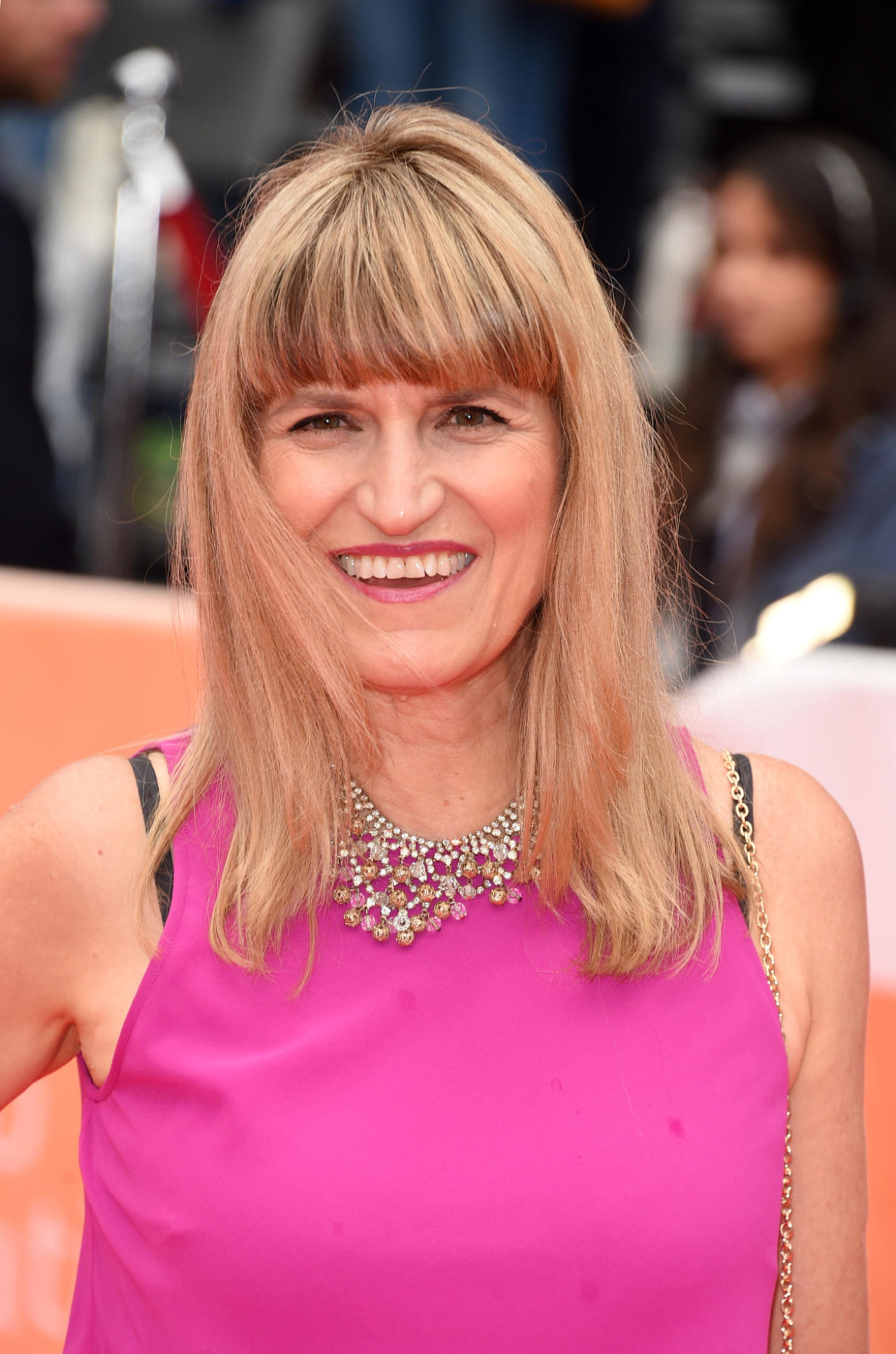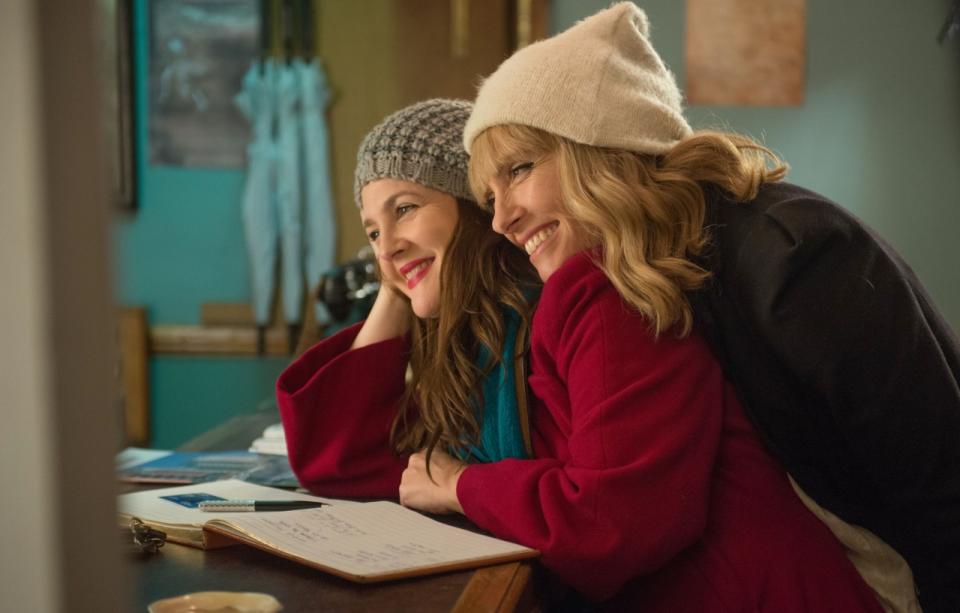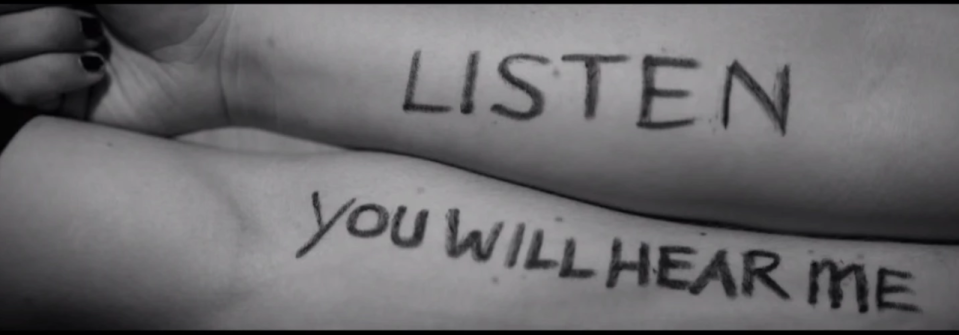Film Director Catherine Hardwick Deftly Tackles All Things Female

Film director Catherine Hardwicke at the Toronto Film Festival. Photo: Getty Images
The film director Catherine Hardwicke has thrown herself into two reverberating conversations about how we treat men and how we treat women: the opportunity discrepancy in Hollywood, and sexual assault on college campuses. To change the conversation about the former, the director, whose past projects include Thirteen, Lords of Dogtown and Twilight is committed to making movies like her latest, Miss You Already, which portrays the unglamorous and unfailing facets of friendship against the backdrop of a cancer diagnosis. Starring Toni Collette, who plays brazen Milly, and Drew Barrymore, as steadfast friend Jess, the film starts almost immediately with Milly’s bad news from an oncologist. Hardwicke, whose father died of cancer, wanted to show authentic portrayals of people moving on with life in the face of disease: cracking jokes and complaining as readily as they cry.
When Diane Warren, who wrote two songs for Miss You Already, asked if Hardwicke would be interested in directing a video for “Till It Happens to You,” by Lady Gaga, she didn’t debate for a second. The song was created for this year’s documentary, The Hunting Ground, about college students’ administrative and psychological struggles in the aftermath of a sexual assault. Hardwicke’s video is a harrowing but poignant depiction of three violent and eerily plausible narratives and has been viewed over 19 million times on YouTube. “We just found out yesterday that a lot of the rape crisis hotlines have reported that as a direct result of people seeing the video, they felt that they would come forward and share their story for help and support,” said Hardwicke over the phone. “It’s insane.” She spoke to Yahoo Style about her career path, feminism, and why millennials caring about values could change things for the better.
Yahoo Style: I know one reason you were interested in working on Miss You Already was the resilience and wit you observed from your father when he was diagnosed with cancer. Were there other observations about cancer victims that you kept in mind as you were directing this?
Catherine Hardwicke: One of my good friends is going through cancer right now — she has been for several years. She usually doesn’t want to talk about it. It’s more like life and storytelling and fun and what are you doing and just finding ways to keep life going. In this case, Milly has two young kids, they’re still going to go to swim camp, she’s got her husband, she’s got her job. She’s still trying to be involved in her work and her friendship and her life. She cares about her sex life, too. She wants keep it all going. She doesn’t suddenly get a book on how to be a perfect cancer patient, or how to be a hero, or how to be a saint. She stays with all her messy dreams and desires and goals and conflicts.
I found the camera movement really dynamic. There are a lot of closeups but they cutaway really quickly, onto something else.
Some of that is just the editing pattern and some is the way we chose to film it. I love the photographer Nan Goldin and she has that intimacy in her photographs where you really feel like you’re one of the family, or you’re next to a couple on the bed that’s having sex. In some cases I was shooting some little scenes myself with this little tiny camera called an indie cam. Two scenes I shot myself with my iPhone.
People seem to draw comparisons between this movie and Beaches. It actually reminded me a lot of the book Lets Take the Long Way Home by Gail Caldwell. Are there texts you had in mind?
Here’s a weird thing— when I do a movie, for better or worse I don’t watch every movie related to it. When I did Thirteen, I wasn’t looking at every teen movie, I was actually looking at Martin Scorsese’s first movie, Mean Streets, because he had no money and I had no money.
Another idea in the film is that friendships can be as important or and more resilient than a marriage; that a friend can really be at the center of your world.
Think about The Bechdel test : if a woman in a movie has an actual name, has a job, and has a scene with another woman where they’re not talking about a man; that’s so rare in film. The first meeting I had with Drew was awesome, she just nailed it. She said “my favorite movies are platonic love stories.”

Actresses Drew Barrymore and Toni Colette in Hardwicke’s “Miss You Already.” Photo: Everett Digital
What was the process of making Till it Happens to You like?
I saw The Hunting Ground and I was just standing up and yelling at the screen: “How can this be true?” Of course, I’ve had personal experiences similar to what you see in the documentary. After Diane [Warren] suggested we do a video, I was jumping on my mini tramp listening to the way Lady Gaga sings that song - over and over and over and i just got inspired. She starts out so vulnerable and throughout the song she gets angry, she regains her power.
Both college campuses and Hollywood are having some problems advocating for women. Do you see anything in common with what’s plaguing both?
I think its all of our society — that we have this unconscious gender bias. Amazing women like Sheryl Sandberg and Stacy Smith are digging into this. They’ve have helped me understand what I’ve gone through for the past 15 years trying to be a director. We’re wired to think men are an authority - women are not an authority. In The Hunting Ground, a lot of the women are the deans of these schools and they haven’t prosecuted the rapists. They’ve been part of the shaming and the blaming of the victims.

A still from Lady Gaga’s music video “It Could Happen to You”, directed by Catherine Hardwicke.
What is one small thing that would help in Hollywood?
I think one little thing definitely is — actually it’s one big thing, but it’s kind of easy to do and a lot of other businesses have done it with great success — is just make a commitment, a simple commitment from the top down that for every man we hire we’re going to hire a woman. In one year we could stop having this conversation if everybody just took the scales off of their eyes, stopped making excuses and stopped the last century bullshit. Women are strong, they’re capable, they’re amazing, they’re 50 percent of the population. Let’s support them.
Because of a lawsuit brought by the ACLU, I’m actually going to testify at the Equal Employment Opportunity commission. I want the change to happen by inspiring people who want to be on the right side of history, want to be ahead of the game. Not that they have to be bullied by the government, but if people won’t step up and do the right thing then maybe they do have to get whacked with a stick.
Who encouraged you to be a director?
Well that’s where we get to the other problem which is the mentor, the role model, the sponsorship problem. I can’t remember anybody encouraging me to direct. However, at UCLA, where I went to grad school, they’re closer to gender parity. But as you might have seen when you got a chance to look at the women in film study, which is sponsored by Women In Film in Sundance, they have what they call the leaky pipeline: women start out making movies and fall off because of a lack of industry support.
According to the statistics, millennials actually give a shit about values. They actually care about the products they buy from a company that has good values similar to theirs. So maybe things can change. I see a lot of hope that it can change. We can be early adapters and leaders of the charge and be brave suffragists! Cool, badass women.
Follow us on Facebook, Instagram, and Pinterest for nonstop inspiration delivered fresh to your feed, every day.

